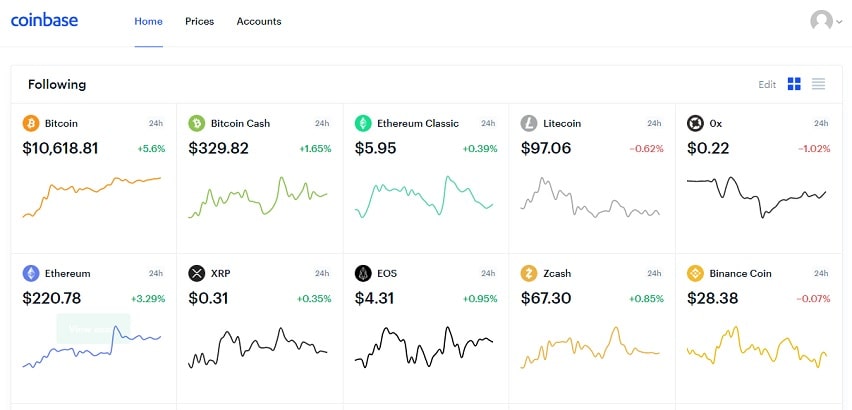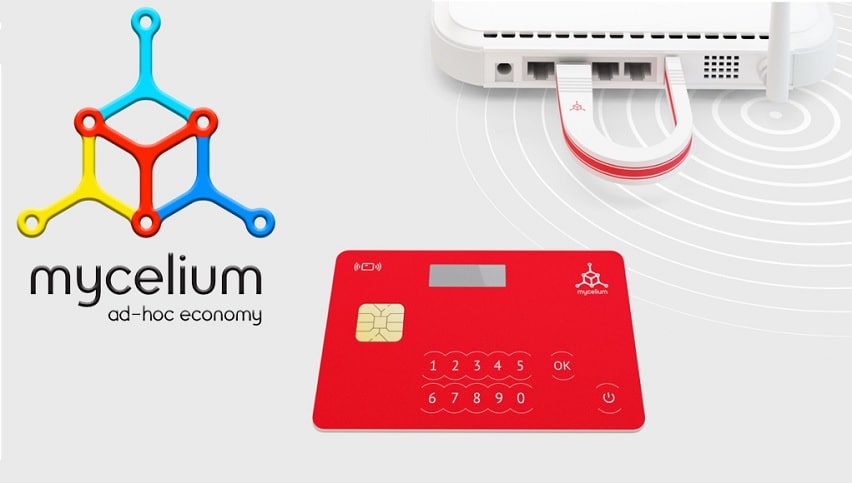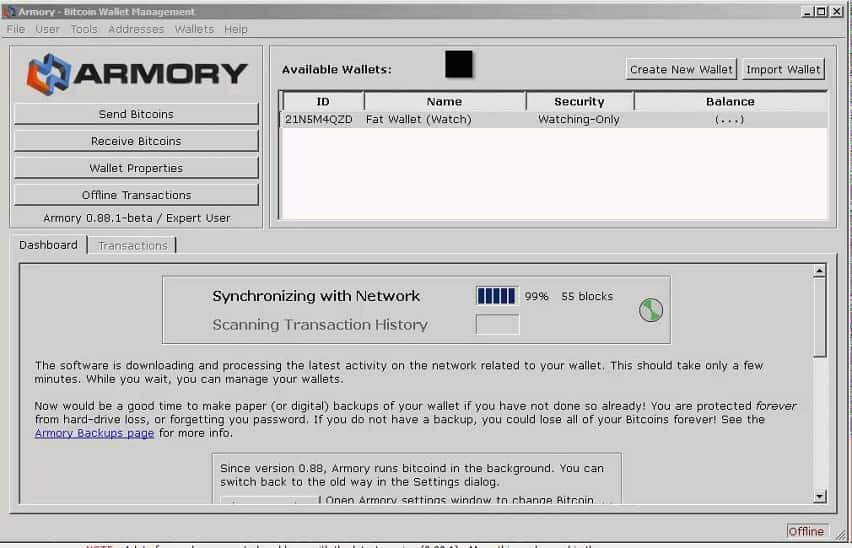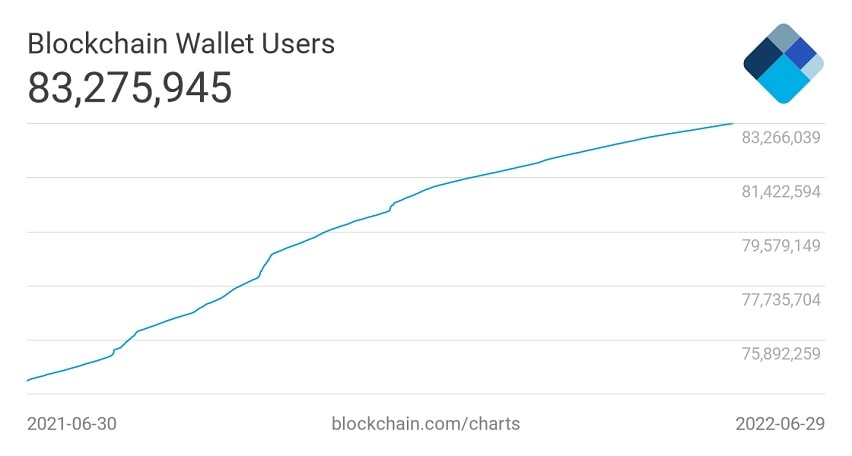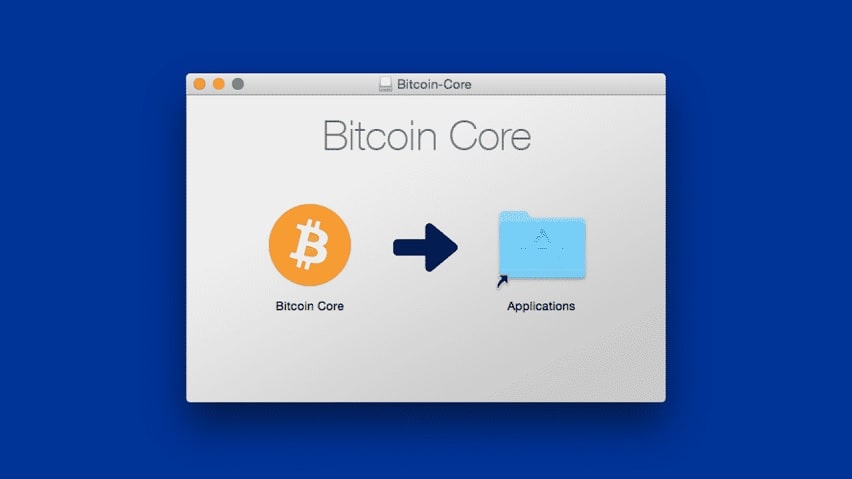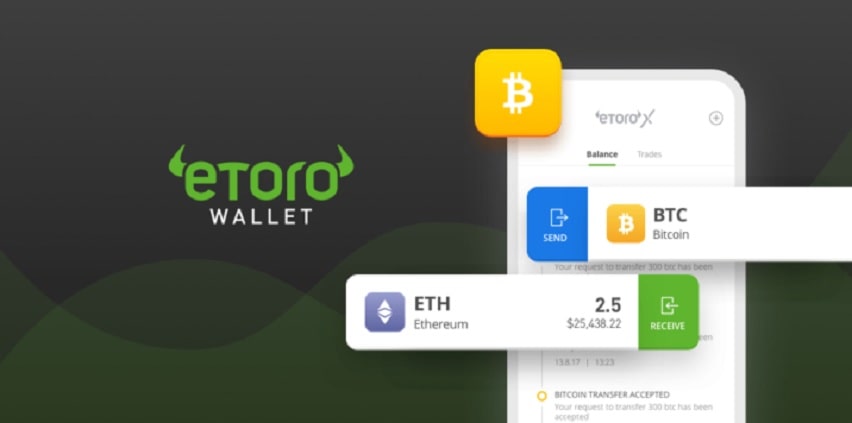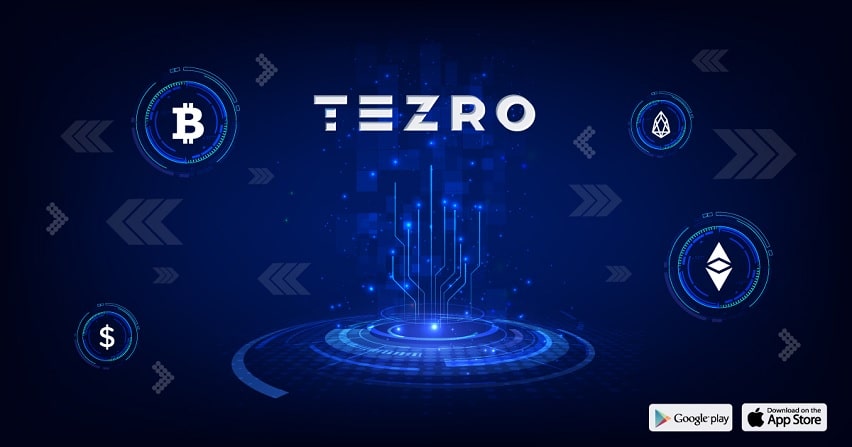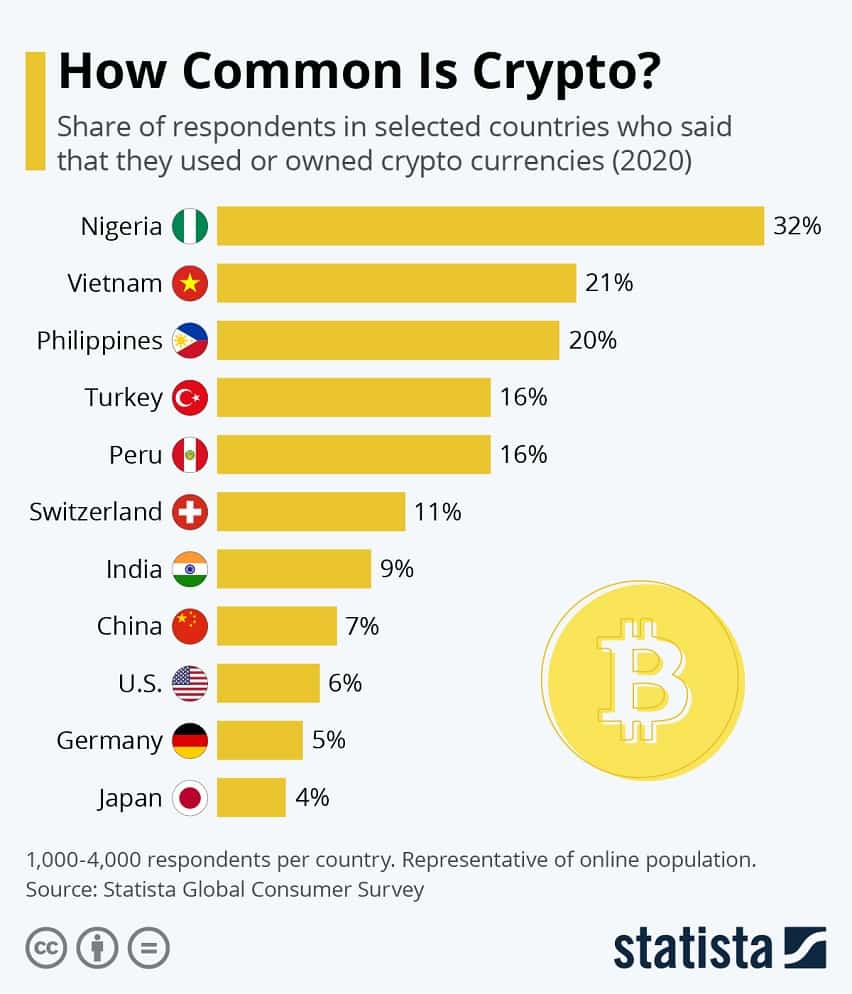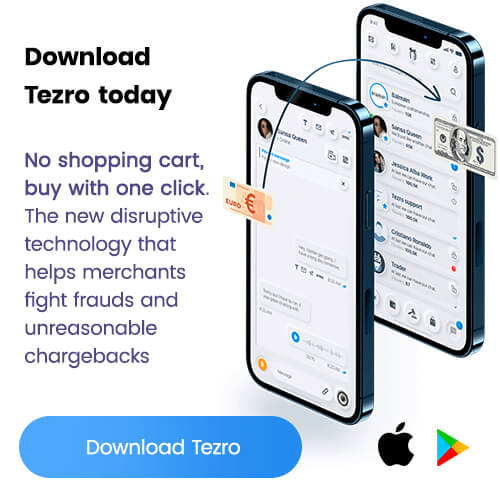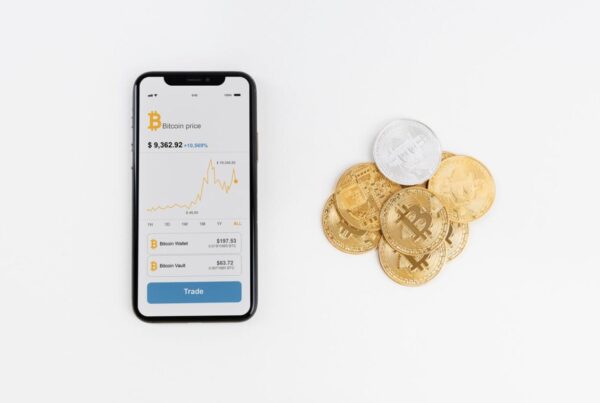In the crypto world, finding crypto wallets with the lowest fees is essential to success. If you are not careful, fees can eat up a large chunk of your profits.
Fees may be charged to move money in and out of wallets, or convert between different types of cryptocurrency. The amount charged depends on a few factors, including the currency, the wallet provider, and the amount being moved.
It is worth noting that miners also charge a fee for processing transactions. This is separate from the wallet fee and is paid to the miners who confirm transactions on the blockchain. Simply put, they get paid for their work in ensuring the security of the network.
In this article, we have compiled a list of the eight of the best crypto wallets with the lowest fees in 2023. We hope this guide will help save you time and money!
Best Crypto Wallets With Low Fees
1. CoinBase
Developed in 2012, Coinbase has grown to become one of the safest, most reliable, and most intuitive crypto exchanges in the industry. It has a built-in wallet that allows you to store different cryptocurrencies on a secure server and therefore it is the perfect crypto wallet for businesses.
Coinbase wallet is non-custodial, meaning only you have control over your private keys. It supports over 44,000 different cryptocurrencies, making it one of the most versatile wallets on this list.
Coinbase doesn’t charge wallet fees. This means that you don’t pay to use it. However, Coinbase does charge network fees when you make a transaction. These fees are generally very low, around 1.49% to 3.99%.
The transaction fees in Coinbase are customizable. You can choose how much you want to pay in fees. The more you are willing to pay in fees, the faster your transaction will be processed.
Pros
- Supports decentralized applications (dApps): dApps are applications that run on a decentralized network, such as Ethereum. Coinbase allows you to manage your dApps and NFTs in one place.
- Charges network fees only: You don’t have to pay any wallet fees when using Coinbase. However, you will have to pay network fees whenever you make a transaction. These fees are generally very low.
Cons
- Code is not open-source: The code for Coinbase is not open-source. This means that it cannot be audited by third-party security experts.
- Poor customer service: Coinbase scores poorly when it comes to customer service. There have been many reports of people not being able to get in touch with customer support or getting unsatisfactory responses.
2. Mycelium Bitcoin Wallet
Mycelium is a Hierarchical Deterministic (HD) wallet. This means that it generates a new address for each transaction. This makes it more secure than wallets that use a single address for all transactions.
This wallet charges reasonable fees on transactions. The transaction is capped at 1% of the transaction. Generally, expect to pay $0.25 to $8.00 depending on the amount of crypto you’re sending.
Pros
- Enhanced security: This is a reproducible app. This means that if the developers disappear, anyone can pick up where they left off. This also makes it open source, which enhances its security.
- Local Trader feature: Mycelium has a built-in exchange called Local Trader. This allows you to buy and sell Bitcoin without having to use an exchange.
Cons
- Complicated for beginners: Mycelium is a powerful wallet with many features. This can be confusing for beginners who are not used to using Bitcoin wallets.
- Email-only support: If you have any questions or problems, you can only contact the Mycelium team by email. There is no live chat or phone support.
3. Armory Wallet
Launched in 2013, Armory is one of the oldest Bitcoin wallets. It was created by developers who were also behind the creation of Bitcoin-Qt (now called Bitcoin Core).
Armory is a full-featured wallet that allows you to create multiple wallets, each with its own set of addresses and private keys.
This wallet uses cold storage, which means that your private keys are stored offline. This makes it more secure than hot wallets, which store your private keys online.
This low fee crypto wallet allows users to be in control of their transaction fees. The amount you choose to pay depends on the urgency and priority of your transaction.
Pros
- High security: Armory is a very secure wallet. It uses cold storage and has a multi-signature feature. This makes it one of the best wallets for people who are serious about security.
- Flexible fees: You can choose how much you want to pay in transaction fees. This allows you to prioritize your transactions.
- Multiple wallets: You can create multiple wallets with Armory. This can be useful if you want to keep your Bitcoin in separate wallets for different purposes.
Cons
- No mobile app: There is no Armory mobile app. This means that you can only use this wallet on a desktop or laptop computer.
- Not beginner-friendly: Armory is a powerful wallet with many features. This can be confusing for beginners who are not used to using Bitcoin wallets.
4. GreenAddress Bitcoin Wallet
Another best crypto wallet with low fees is GreenAddress. This wallet was launched in 2013, making it one of the oldest wallets in the market.
This wallet is hierarchical deterministic (HD). HD is one of the most important features to look for when choosing a cryptocurrency wallet. HD wallets generate a new public key for each transaction ensuring that your funds are always safe and secure.
GreenAddress allows users to customize their transaction fees based on the urgency. This means you can choose to pay a higher fee for faster confirmation times, or a lower fee if you don’t mind waiting a bit longer.
Pros
- Military-grade security: GreenAddress uses state-of-the-art security measures to protect your funds.
- Customizable transaction fees: You can choose to pay more or less for faster or slower confirmation times.
- Ease to use: This wallet is easy to use and perfect for beginners.
Open-source: GreenAddress is an open-source wallet, which means that the code is publicly available for anyone to review.
Cons
- No two-factor authentication: This wallet does not offer two-factor authentication, which is a security measure that allows you to confirm your identity before accessing your account.
- Limited customer support: GreenAddress only offers email support, which can be slow and inconvenient.
5. BlockChain.com Wallet
Blockchain.com is one of the most popular cryptocurrency wallets with the lowest fees. This wallet was launched in 2011 and currently has over 30 million users.
This wallet is non-custodial, which means that you are the only one who has access to your private keys. This is a great feature for security-conscious users.
On this wallet, you only pay transaction fees when you make a transaction. The fees you pay vary depending on several factors, such as the cryptocurrency you’re using and the amount you’re sending. You can also customize your fees depending on the urgency of your transaction.
Pros
- Security: This wallet uses multiple layers of security to protect your funds, including two-factor authentication and a host of other security measures.
- Non-custodial: You are the only one who has access to your private keys, which means that you are in control of your funds.
Cons
- Poor customer service: Some customers have complained about the poor customer service offered by Blockchain.com.
6. Bitcoin Core Wallet
Bitcoin Core is a popular cryptocurrency wallet with low fees. This wallet was created by the developers of Bitcoin and is the official wallet for this cryptocurrency.
This wallet is a full node, which means that it stores the entire blockchain on your computer. This can take up a lot of space, but it also means that you are in control of your funds.
What makes Bitcoin Core a crypto wallet with the lowest fees is the fact that it allows you to customize your transaction fee. Transaction priority is determined by the fee amount, so you can choose to pay a higher fee for faster confirmation, or a lower fee if you don’t mind waiting a bit longer.
Pros
- Full control of your crypto: Bitcoin Core gives you complete control over your cryptocurrency. This means that no one can freeze or take away your funds.
- Open-source: Bitcoin Core is an open-source project, which means that anyone can contribute to its development.
- Security: Bitcoin Core is a very secure wallet, as it uses multiple layers of security.
Cons
- Space: As mentioned before, Bitcoin Core stores the entire blockchain on your computer. This can take up a lot of space.
- Bandwidth restrictions: In order to keep your computer from getting overloaded, Bitcoin Core limits the amount of data that it downloads. This can be a problem if you have a slow internet connection.
7. eToro Wallet
eToro is a popular social trading and investment platform that also offers a crypto wallet with low fees. This wallet is available for both Android and iOS devices.
eToro allows you to buy, sell, and store cryptocurrencies, as well as trade CFDs. You can also change Crypto to Crypto. There are over 500 crypto pairs available to trade.
What makes it the best crypto wallet with low fees is that you have control over how much you want to pay for a transaction. The more you pay, the faster the transaction will be confirmed.
Pros
- Multi-asset support: eToro offers a wide range of assets, including cryptocurrencies, stocks, and ETFs.
- Beginner friendly: eToro is a great platform for beginners as it is very user-friendly. There is also a lot of educational material available on the platform.
- Security: eToro uses multiple layers of security, including two-factor authentication.
Cons
- Limited payment methods: You can only deposit and withdraw money using bank transfer or credit/debit card.
- High fees for some countries: eToro charges high fees for some countries, especially for withdrawals.
8. Tezro
This list of the best crypto wallets with the lowest fees cannot be complete without mentioning Tezro. This is a revolutionary wallet that allows you to store, send, and receive cryptocurrencies.
This wallet is non-custodial, which means that you are the only one who has control over your funds. Tezro also uses cutting-edge security features, such as two-factor authentication, SSL encryption, and a host of other security measures.
It comes with an escrow system that protects you from fraud. When you make a transaction, the funds are held in escrow until the recipient confirms that they have received the funds.
There is a disruptive chat feature that allows you to communicate with other users and perform transactions without leaving the chat interface.
This wallet allows you to set an approximate value for your transaction. The network will then determine the optimal fee based on the current conditions.
Pros
- Non-custodial: Tezro does not hold your funds, which means that you are in complete control of your money.
- Easy to use: This is the most user-friendly wallet on this list. It is very easy to use, even for beginners and it includes a loan service.
- High security: Tezro uses cutting-edge security features to protect your funds.
- Disruptive chat feature: The chat interface allows you to communicate with other users and perform transactions without leaving the chat interface.
Cons
- Relatively new: Despite having the most innovative features, Tezro is a relatively new wallet.
How to Choose a Low Fee Crypto Wallet?
Choosing a low-fee crypto wallet is not as easy as it sounds. There are a lot of things you need to take into account, including:
- Understand how the fees occur: You need to understand how the fees are charged before you can choose the best wallet for low fees.
- Your needs: Not all wallets are created equal. Some wallets are better suited for certain needs than others. You need to choose a wallet that meets your specific needs.
- Security: This is one of the most important factors you need to consider when choosing a crypto wallet. The security of your funds should be your top priority. Even if a wallet has low fees, never sacrifice security.
Cryptocurrency Transaction Fee Structure
The cryptocurrency transaction fee structure is an important part of the ecosystem and one that is often misunderstood. It is defined by the protocol and each transaction has a small fee attached to it. These fees go to the miners who confirm the transactions and add them to the blockchain.
The fees are not set by the wallet providers but by the network users. When you send a transaction, your wallet will estimate an appropriate fee based on current network conditions. The higher the fee, the more likely your transaction will be included in the next block.
Transaction speed is also a function of fees. If you want your transaction to be included in the next block, you will need to pay a higher fee. The average transaction takes about ten minutes to confirm but if you are willing to pay a higher fee, your transaction can be confirmed much faster.
What Affects Crypto Transaction Fees?
A few factors affect how much you will pay in fees for your cryptocurrency transaction. They include:
- Transaction size: The larger the transaction, the more data there is to propagate and the more work miners need to do to include it in a block. As a result, larger transactions tend to have higher fees.
- Priority: Transactions with higher fees are given priority by miners and are more likely to be included in the next block.
- Network congestion: When the network is congested, miners will prioritize transactions with higher fees. This can cause fees to spike during periods of high activity.
How do Wallets Affect Transaction Fees?
Wallets don’t directly affect the fees you pay but they can indirectly affect them. For instance, wallets that use SegWit or Lightning network technology can reduce the size of transactions and, as a result, the fees you pay.
You may need to change the wallet’s default settings to take advantage of these features.
Some altcoin wallets also allow you to choose the fee you want to pay. This can be useful if you want your transaction to be included in the next block but don’t want to pay a high fee.
However, be aware that if you choose a fee that is too low, your transaction may take a long time to confirm or it may not confirm at all.
FAQs About the Cheapest Crypto Wallets
Below are some frequently asked questions about the cheapest crypto wallets:
Which Crypto Wallet Has The Lowest Fees?
Tezro, Armory, and Coinbase have the lowest fees. They allow users to take charge of how much they are willing to pay for each transaction.
Do All Crypto Wallets Charge Fees?
All the wallets outlined in this article don’t charge any fees on transactions. Rather, only network fees are applied which go to the miners. This means when sending or receiving cryptocurrencies, you will not be charged any extra fees.
Is There A Crypto Wallet That Doesn’t Charge Any Fees?
Miners must be compensated for their work, so there is no such thing as a “free” cryptocurrency wallet. All wallets will charge some sort of fee, whether it’s a network fee, transaction fee, or both.
How Can I Reduce Crypto Transfer Fees?
There are a few things you can do to reduce fees when sending or receiving cryptocurrencies.
The best is to use a wallet that allows you to control your own fees. You can also choose to use a wallet that uses the SegWit protocol. This can reduce fees by up to 50%. Finally, you can always wait for periods of low network activity to send your transaction. This will minimize the fees you have to pay.
Key Takeaways
- There is no such thing as a free cryptocurrency wallet: you will always be charged a network or transaction fee.
- The wallets with the lowest fees allow you to store your assets without overspending.
- Remember to do thorough research because security is the primary concern when choosing a crypto wallet.
Final Thoughts
These 8 crypto wallets with the lowest fees are the best in the market and will allow you to save money on every transaction. Choose one that suits your needs and start saving today.
Remember that to keep your assets safe and your conversations private you can download Tezro app today. Get to know more about us in our blog section.

